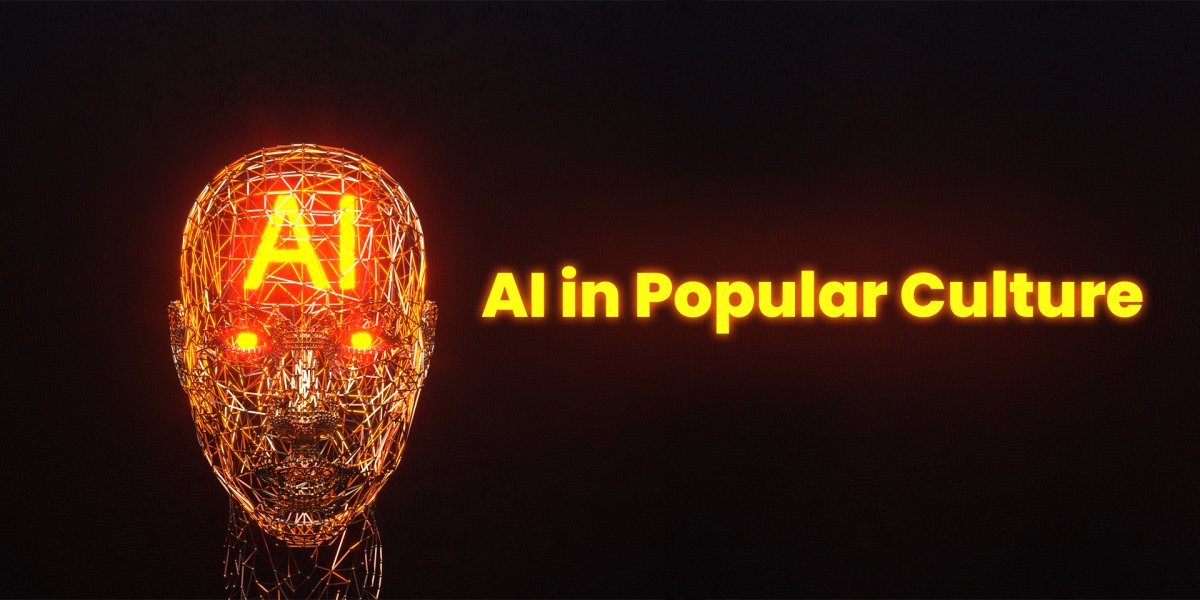Since long before contemporary computers, futuristic thinkers and authors of science fiction have been fascinated with artificial intelligence (AI). Students of history, cinema, and literature understand that science fiction represents the collective mood of society. We know several examples of artificial intelligence. However, most of the time lack knowledge of the way it operates. Because of the hype (and pop culture fallacies) around this developing technology, describing artificial intelligence may be difficult. Advanced AI is a robust and effective tool that helps people uncover patterns in vast amounts of data that human beings would not be able to comprehend on their own. For many years, AI in popular culture has been a significant motif. AI in popular culture is frequently depicted as welcoming and beneficial, as well as malignant and harmful.
AI takeover
- AI takeover is an ongoing subject in science fiction, with the notion that some type of artificially intelligent system may overtake humanity as the dominant sentient species in the world.
- The Matrix and Terminator are two iconic examples.
- Fictional simulations often include a protracted fight against hostile AI or humanoid robots.
- In contrast, other experts argue that an imminent advanced AI takeover, if it occurred in real life, would be a benevolent outcome of the AI’s attempt to achieve its own alien objectives, instead of an outcome of hostility aimed at humans.
AI in popular culture – Television
Star Trek: The Next Generation
- Star Trek is an internationally recognized TV series that has captivated millions of science fiction fans and attained famous status.
- The program portrayed sophisticated aliens, starships, and plots that foreshadowed how machine learning and AI might play an important part in our future.
- It featured Brent Spiner as Lieutenant Commander Data.
The Westworld
The series tells the story of occurrences that happen in a Western-themed theme park, where the show’s hosts are robots armed with artificial intelligence to connect with human beings who visit the park, who they refer to as “guests.”
AI in popular culture – Some popular examples
HAL 9000 (2001: A Space Odyssey)
- When we talk about AI in popular culture, one of the first movies that comes to mind is 2001: A Space Odyssey.
- HAL 9000, the ostensibly omniscient computer in “2001: A Space Odyssey,” was the film’s most emotionally charged and expressive character.
- He left an indelible imprint on the imagination of mankind.
- HAL 9000 drives a spacecraft on its way to Jupiter.
- HAL 9000 is a prominent character in the film since it can behave and interact like a human.
- However, with the advancement of the mission HAL 9000 begins to malfunction, presenting significant difficulties for the personnel.
Blade Runner
- Blade Runner, another example of AI in popular culture, depicts a future in which human beings and advanced androids known as Replicants coexist.
- Furthermore, the distinction between ‘real’ and ‘fake’ persons is irrevocably muddled.
- This science fiction thriller film investigates the perils, uncertainties, and ethical and moral quandaries that accompany the development of sophisticated artificial intelligence (AI).
- Although Replicants might continue to exist solely in the realms of science fiction, Blade Runner raises vital concerns regarding human-computer associations and AI ethics.
Transcendence
- This 2014 film depicts how a scientist’s desire for artificial intelligence has disastrous consequences when his own mind is put into one such program.
- Johnny Depp plays a scientist who transfers his mind into a super clever AI system in this sci-fi thriller.
- The theme of this movie is centered around technological singleness, the union of artificial and human intellect, and the ethical conflicts that such technical breakthroughs might cause.
The Terminator Series
- This series features the unstoppable Arnold Schwarzenegger., as it combines artificial intelligence and time travel concepts.
- A self-aware computer system starts a nuclear war and sends out robotic killers known as Terminators to wipe off humanity.
- It is all about AI turned wild and the human race’s fight for survival.
The Matrix Series
- The movies revolve on a powerful AI system that has developed its own artificial reality in order to dominate and assault humans.
- Agent Smith from The Matrix is a sophisticated AI agent that can control the virtual world and take on several identities.
- The film addresses some difficult issues regarding reality, freedom of choice, and the distinctions between people and technology.
- It is so fascinating that it makes you question whether we’re already trapped within a matrix!
AI in pop culture – The future
- AI in popular culture is an important area of study.
- It shows how technology is impacting how people who are engaged with the media.
- With advanced AI, it will continue to evolve and influence popular culture in new and thrilling ways. The impact of AI in popular culture, from computer-generated artwork and music is visible to everyone.
- As we move forward, we must assess the potential positive and negative repercussions of these advancements on people’s behaviors and perspectives.
- We may work toward a more fair and relevant AI and culture for everybody by recognizing the intriguing potential of AI in popular culture while staying aware of its limitations.
The representation of AI in popular culture portrays both society’s desire with the possibilities of robust technology and its fears about the ramifications of developing entities that may transcend or be dangerous for mankind. These portrayals have affected popular views of AI and debates about its ethics, consequences, and upcoming advances.

